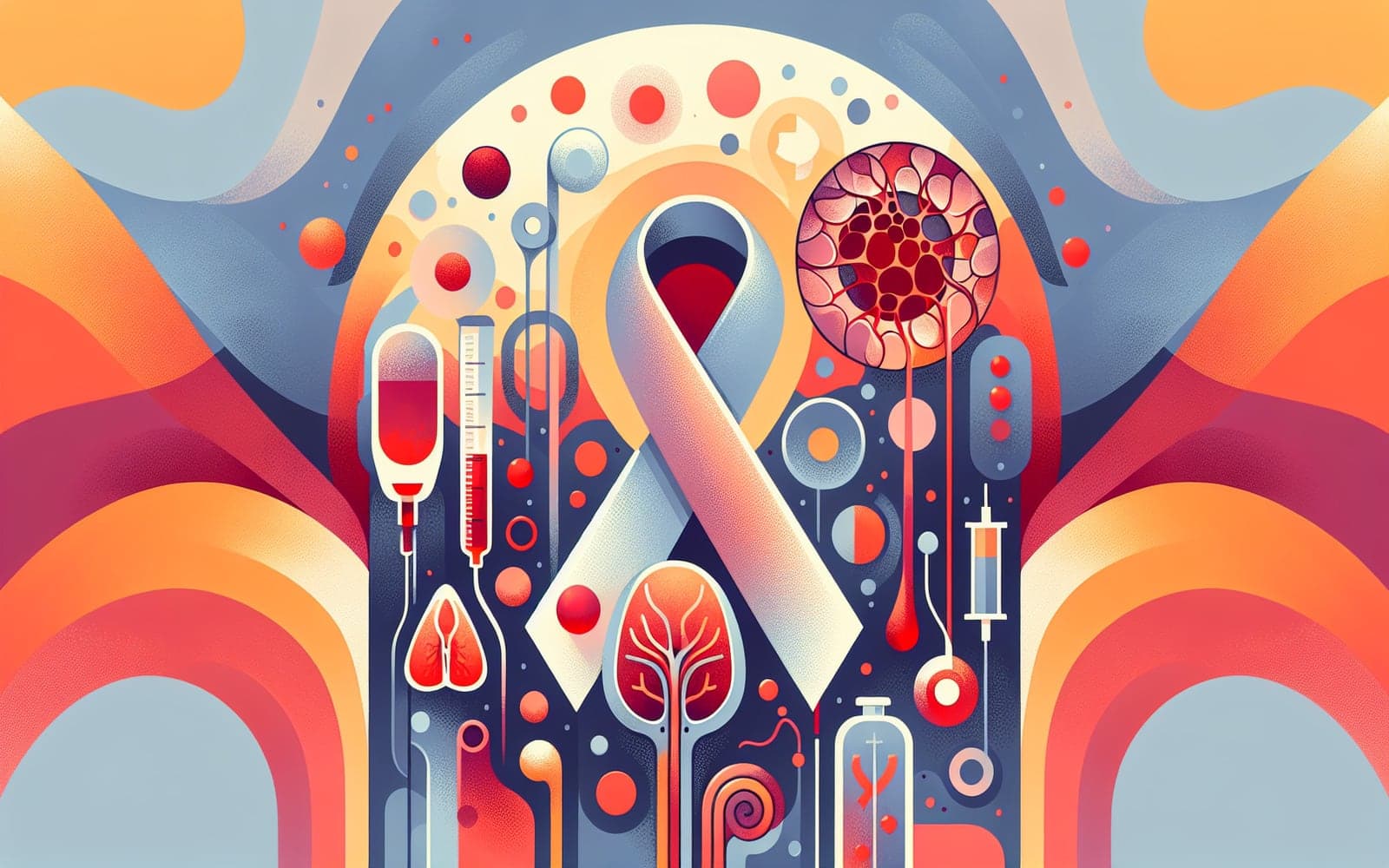Chronic Myeloid Leukemia: What You Need to Know About This Blood Cancer
Published: Jul 25, 2024

Medically reviewed by Becky Powers | MD, The University of Texas Medical School - Houston, Texas on July 25th, 2024.
Chronic Myeloid Leukemia (CML) is a type of blood cancer that affects the production of white blood cells. It's caused by a genetic change that creates an abnormal protein, leading to uncontrolled cell growth.
Contents
What Causes CML?
CML is caused by a genetic change called the Philadelphia chromosome. This occurs when parts of chromosomes 9 and 22 swap places, creating an abnormal gene called BCR-ABL1. This gene produces a protein that signals cells to grow and divide uncontrollably, leading to an overproduction of immature white blood cells.
Symptoms and Diagnosis
Many people with CML don't have symptoms at first and are diagnosed through routine blood tests. When symptoms do occur, they can include fatigue, weight loss, night sweats, and abdominal discomfort from an enlarged spleen. Doctors diagnose CML through blood tests, bone marrow biopsies, and genetic tests that look for the Philadelphia chromosome or BCR-ABL1 gene.

Stages of CML
CML progresses through three phases: chronic, accelerated, and blast crisis. Most people are diagnosed in the chronic phase, which is the least severe. The accelerated phase shows more immature cells in the blood and bone marrow. Blast crisis is the most severe phase and resembles acute leukemia.
Frequently Asked Questions
While not typically curable, CML is highly treatable with targeted therapies.
CML can affect anyone, but it's more common in older adults and slightly more frequent in men.
CML is primarily treated with targeted drugs called tyrosine kinase inhibitors (TKIs).
There's no known way to prevent CML, as its cause is largely unknown.
Key Takeaways
With modern treatments, many people with CML can lead normal lives and have a life expectancy similar to the general population.
Wondering about your risk for CML or have concerns about symptoms? Talk to Doctronic, your AI doctor, for personalized information and guidance.Related Articles
References
Faderl S, Talpaz M, Estrov Z, et al. The biology of chronic myeloid leukemia. N Engl J Med 1999; 341:164.
Arber DA, Orazi A, Hasserjian R, et al. The 2016 revision to the World Health Organization classification of myeloid neoplasms and acute leukemia. Blood 2016; 127:2391.
This article has been reviewed for accuracy by one of the licensed medical doctors working for Doctronic. Always discuss health information with your healthcare provider.

